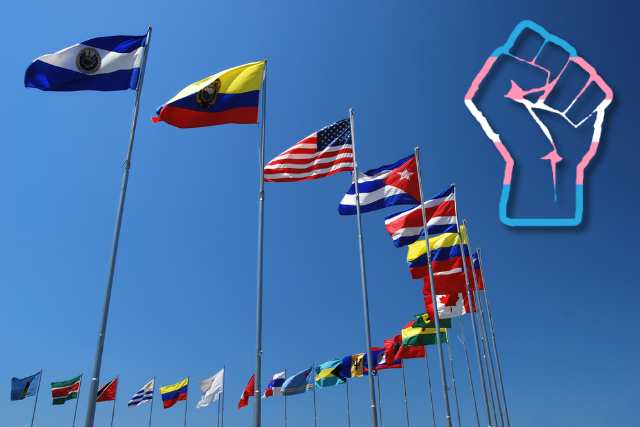Legal Gender X Recognition in Latin America
Progress, Challenges, and Future Paths
Latin America has emerged as a region of dynamic social change, with several countries advancing progressive policies on LGBTQ+ rights. Among these reforms is the recognition of Gender X identities—an essential step toward inclusion and equality. From updated ID laws to trailblazing court rulings, Latin American nations are leading efforts to affirm non-binary and Gender X identities while tackling significant social and legal challenges.
What Is Gender X Legal Recognition?
Legal Gender X recognition allows individuals to identify outside the binary categories of male and female on official documents like IDs, passports, and birth certificates. This legal acknowledgment empowers Gender X individuals by validating their identities and providing access to rights and services that match their lived experience.
Core benefits of Gender X recognition include:
- Eliminating Misalignment: Avoids discrepancies between legal identification and personal identity.
- Enhancing Access: Simplifies processes for accessing healthcare, education, and employment.
- Reducing Discrimination: Provides legal protection against identity-based discrimination in public and private sectors.
Did You Know?
Argentina was the first country in Latin America to adopt a comprehensive Gender Identity Law in 2012, setting the stage for recognizing Gender X and non-binary identities.
Countries Leading the Way
Several Latin American countries have made significant strides in Gender X legal recognition, often serving as models for global reform. Here’s a closer look:
Argentina
As a trailblazer in LGBTQ+ rights, Argentina’s Gender Identity Law of 2012 allows individuals to change their gender marker on legal documents without medical or psychological approval. In 2021, the country officially introduced the Gender X marker for non-binary individuals, making it a pioneer in the region.
Uruguay
Uruguay followed Argentina’s lead by passing a gender identity law in 2018. The law enables self-identification on official documents, including a Gender X option, and provides access to state-funded gender-affirming healthcare.
Mexico
Progress in Mexico varies by state. In 2021, Mexico City began offering Gender X options on birth certificates and other documents, and advocacy efforts are pushing for nationwide adoption of similar policies.
In the Spotlight: In a landmark case in 2022, the Mexican Supreme Court ruled that requiring binary gender markers on IDs violates constitutional rights, paving the way for broader reforms.
Colombia
Colombia has made strides with constitutional court rulings supporting gender self-determination. While not yet fully implemented, advocacy groups are pushing for the inclusion of Gender X markers in national ID systems.
Chile
Chile’s Gender Identity Law of 2018 grants individuals over 14 years old the right to change their gender on legal documents, but discussions about adding a Gender X marker are ongoing.
The Role of Advocacy in Driving Change
None of these advancements would be possible without the tireless efforts of activists and advocacy groups. Organizations like ILGA Latin America and local LGBTQ+ collectives have led campaigns for Gender X recognition, often facing significant resistance.
Advocacy strategies that have proven effective include:
- Legal Challenges: Filing court cases to push for constitutional recognition of non-binary rights.
- Public Awareness Campaigns: Educating the public about Gender X identities through media and grassroots efforts.
- Collaboration With Policymakers: Partnering with progressive lawmakers to draft and introduce inclusive legislation.
Advocacy Highlight: In Uruguay, LGBTQ+ organizations worked closely with parliament to ensure their Gender Identity Law addressed non-binary needs, showcasing the power of collaboration.
Challenges to Full Legal Recognition
Despite progress, barriers to comprehensive Gender X recognition remain prevalent. These challenges include:
- Social Resistance: Deeply ingrained cultural norms often fuel opposition to gender-inclusive policies.
- Legal Inconsistencies: Patchwork laws across countries or regions create inequities in access to Gender X recognition.
- Lack of Implementation: Even where laws exist, delays and bureaucratic obstacles can prevent individuals from accessing their rights.
Addressing these challenges requires sustained advocacy, education, and political will to overcome prejudice and institutional inertia.
The Global Impact of Latin America’s Progress
Latin America’s advancements in Gender X recognition are influencing global conversations about non-binary rights. These reforms demonstrate that inclusive policies are achievable even in regions with strong traditional values. The region’s progress also highlights the importance of grassroots movements in driving legislative change.
Global Perspective: Argentina’s Gender Identity Law has inspired similar legislation in countries like New Zealand and Malta, proving the ripple effect of progressive policies.
Steps Toward a More Inclusive Future
To further advance Gender X recognition in Latin America, governments and advocacy groups can focus on these priorities:
- Standardizing Laws: Ensuring consistent Gender X recognition policies across all regions and countries.
- Training Public Officials: Providing education on implementing inclusive policies to reduce bureaucratic barriers.
- Addressing Intersectionality: Recognizing how race, socioeconomic status, and other factors intersect with gender identity to create equitable policies.
Conclusion: A Path Toward Equality
Latin America’s journey toward Gender X recognition showcases both the potential for progress and the challenges of societal change. By continuing to push for inclusive laws and fostering public awareness, the region can serve as a beacon for global gender equity. Together, governments, activists, and allies can build a future where everyone, regardless of identity, is recognized and valued.

